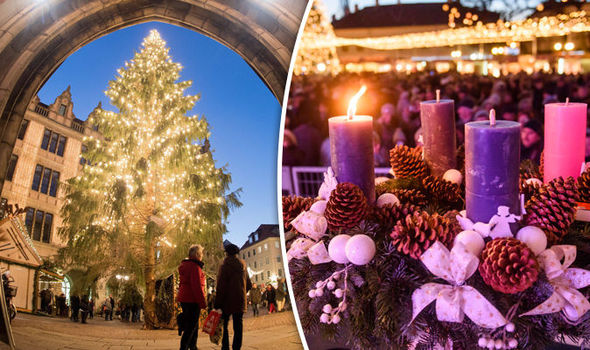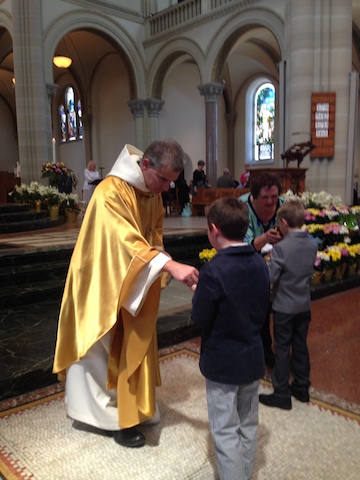I used to think of myself as something of an Advent purist. We had to celebrate Advent as a time of anticipating and longing, and an essential part of this was resisting Christmas songs and decorations and celebrations at long as possible. Often, this has also helped me to put off these distractions until after my fall semester grading is done. I also tend to surround myself with theologians and others who are a bit obsessed about proper liturgical practice. But in the past several years, I have undergone a shift in this. This happened in part because a friend who was raised Catholic but has not practiced in years told me how put off he was by a mutual friend who told him he put his decorations up too soon.
Last Advent, I spent quite a bit of time reflecting on Charles Dickens’ A Christmas Carol, particularly Scrooge as presented in my local theater’s production. I took another group to see it this year. As I said last year, Christmas Carol is an invitation to community, and an invitation to practice the works of mercy. But this year, it struck me that it (and, of course, the Christmas season more broadly) is a serious invitation to build community through the giving and receiving of hospitality. On Christmas morning, after his night of visits from spirits, Scrooge responds in both of this ways. He sends the makings of a feast to Bob Cratchit and his family, and he accepts the hospitality extended by his nephew Fred.
From “I’ll Be Home for Christmas” to any of several dozen Christmas movies running all month on the Hallmark channel (and similar ones), Christmas is a time when the yearning for home, family, and community seems to rise above the other yearnings that capture our attention more at other times. Pope Francis talked about home and hospitality this way, in a talk at the Dono di Maria homeless shelter in 2013:
When we say “home,” we mean a place of hospitality, a dwelling, a pleasant human environment where one stays readily, finds oneself, feels inserted into a territory, a community. Yet more profoundly, home is a word with a typically familiar flavor, which recalls warmth, affection, and the love that can be felt in a family. Hence the home represents the most precious human treasures: encounter, relations among people who are different in age, culture, and history, but who live together and help one another to grow. For this reason, the home is a crucial place in life, where life grows and can be fulfilled, because it is a place in which every person learns to receive love and to give love.
This yearning for home is a yearning for community, and providing that community is an opportunity to provide an experience of the culture of encounter, to provide an education in the giving and receiving of love.
There is a lot of data to suggest that more Americans are more lonely than ever before. I wonder what it would mean for Christians to think about the Advent/Christmas/Epiphany season as a time to honor God-with-us by particular attention to hospitality, and especially to making our homes welcoming spaces for others. It might be finding ways to celebrate Las Posadas in our parishes and neighborhoods. Remembering that the Holy Family were once without room at the inn might help us to welcome the stranger among us. It might mean compromising some of our own desires or traditions to make a bit more space for the lonely around us. Regardless, we Christians need to find ways to live this season in such a way that we invite those who have missed its true meaning in, rather than telling them that their decorations are up too soon.
Most people are yearning for something much deeper than a commentary on their decorating schedule. Let us find ways to offer them home and hospitality, warmth and affection, love and community. And perhaps, through God’s grace, they will discover Jesus in our midst.




